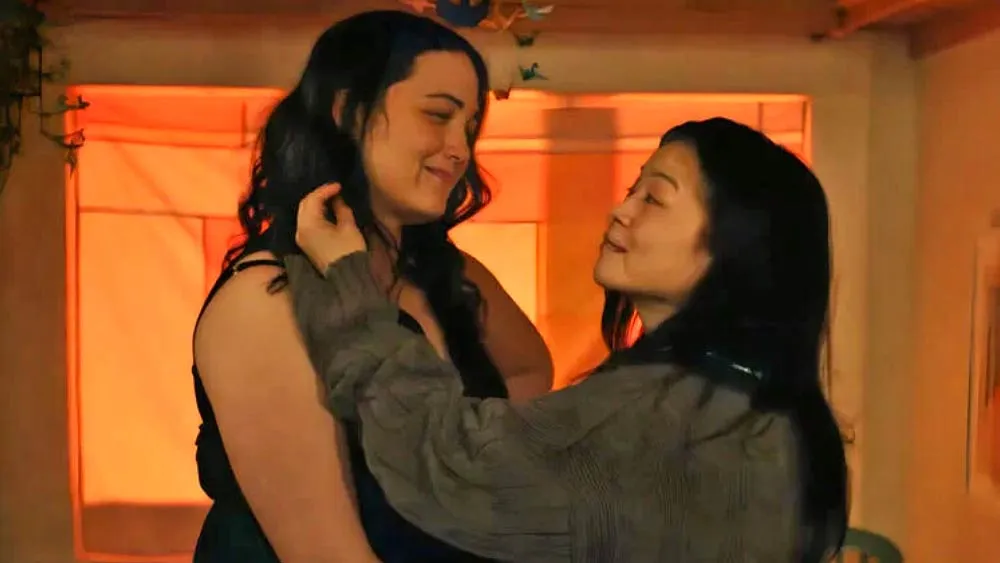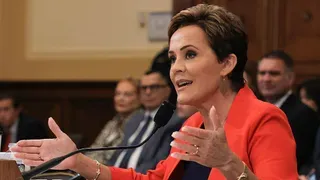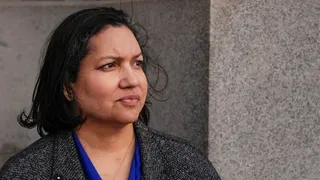March 14, 2011
Discrimination Debate
Kevin Mark Kline READ TIME: 4 MIN.
''If you stick me in a dress and heels, you're not going to find me any more fit for my job,'' said Sama Bellomo in front of the Maryland House of Delegates Health and Government Operations Committee today.
Bellomo was one of many testifying in support of legislation that would prohibit discrimination in the areas of housing, employment, licensing and commercial leasing, against transgender Marylanders.
The committee began hearing testimony from supporters of the legislation, with introduction by the bill's lead sponsor Del. Joseline Pena-Melnyk (D- Anne Arundel, Prince George's), shortly after 1 p.m. and continued until opponents took the stand around 3:30 p.m. The hearing concluded around 4:30 p.m.
Similar legislation, which included protections for transgender people with regard to Maryland public accommodations, has failed in the past. Yet despite the current bill's exclusion of public accommodations, the opposition's arguments have changed little: Such nondiscrimination legislation would confuse children and enable male pedophiles and rapists by allowing them access to women's bathrooms.
''I had questions with my own sexuality, until God said 'You're a man, put away these childhood things,''' testified Robert Broadus, a Marylander opposing the legislation. ''Don't invade our rights to tell our children what we believe. ... We believe that a man should be a man and a woman should be a woman.''
Elaine McDermott, of Maryland Citizens for a Responsible Government, said the bill will lead to unintended consequences.
''This bill is a friend to males with ill intentions,'' McDermott she said, adding, ''HB 235 robs me of my right to safety and privacy.''
One witness, Donna Simone Plamondon, a transgender woman from Baltimore, also spoke in opposition, but on the grounds that the bill excludes public accommodation.
''Even the government of Iran recognizes transexuality as a medical condition,'' she said. ''Transsexuals should be protected by a public-accommodations amendment. ... We deserve the dignity to which all citizens are entitled.''
But supporters of the bill, including the Maryland Black Family Alliance and the American Civil Liberties Union of Maryland, which pointed out that 13 states currently include legislation protecting citizens on the basis of gender identity, greatly outnumbered the opposition.
Supporters included Del. Mary Washington (D-Baltimore City), who said the legislation is way overdue.
''It's way past time to extend these protections to transgender Marylanders,'' she said. ''Every year, qualified, hard-working Marylanders lose their jobs, face termination on the job, are discriminated against, merely because of their gender identity. In guaranteeing a level playing field, HB 235 would make sure that housing opportunities are made available to all.''
Washington added that while she shares the frustration of those angered that the bill does not include public-accommodation protections, she said, ''In the future we will be able to make sure those protections and those opportunities are not denied.''
Supporters of the bill also included Phil Attey, executive director of Catholics for Equality; Father Joseph Palacios, a board member of the same group; and Maryland Catholics for Equality's Manley Calhoun, who shared his coming-out story, which included ultimately seeking solace in religion, rather than turning away from it.
''State reports show that one in five transgender people have lost their jobs because they are transgender,'' Calhoun said. ''Twelve percent have become homeless. These are the least of our brethren and as Catholics we are called to help them.''
An individual living those statistics at one point is Owen Smith. Though he now works as the gender identity field organizer for Equality Maryland, Owen struggled as an unemployed emergency medical technician in the past.
''Not being able to find a job because of my gender identity, I was kicked out of my apartment for not being able to afford my monthly rent,'' he said, crying during his testimony.
Smith told his story of homelessness, living out of his car, finding work at a bar where he used the sink to bathe, and being assaulted at another job.
''This is no way to live,'' Smith said, tearing up.
Currently, Baltimore City and Montgomery County provide protections against discrimination on the basis of gender identity with regard to housing, employment and public accommodation. But longtime Maryland activist Cathy Brennan, who supports the legislation to prohibit discrimination statewide, points out that people are often unaware of these local protections.
''It's not well known that there are local municipalities that already have these protections, and that's why you need a statewide bill to help raise that awareness,'' she said.
Other emotional testimony came from Bonnita Spikes of Upper Marlboro, who talked about her daughter Michelle's gender transition from Michael.
''My husband and I knew very early on that our youngest child was uniquely different,'' she said. ''Michael, as he was known growing up, told my husband and me that he felt trapped in the wrong body ever since he could remember.''
Spikes shared her sadness with the committee, telling them how her daughter was attacked in 2000, hit in the head with a metal pipe, ''and left for dead, simply for being different.''
Obviously grateful her daughter survived, Spikes shared her ongoing alarm at how society continues to mistreat transgender citizens.
''Frankly, I don't know why in this America ... we still have not created the most minimal of legal protections for citizens who are so disproportionably subjected to discrimination and violence simply because of how they look.''
A vote on HB 235 is expected in committee in the coming week.







